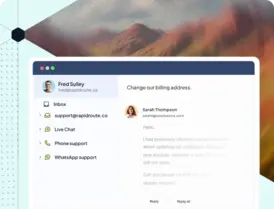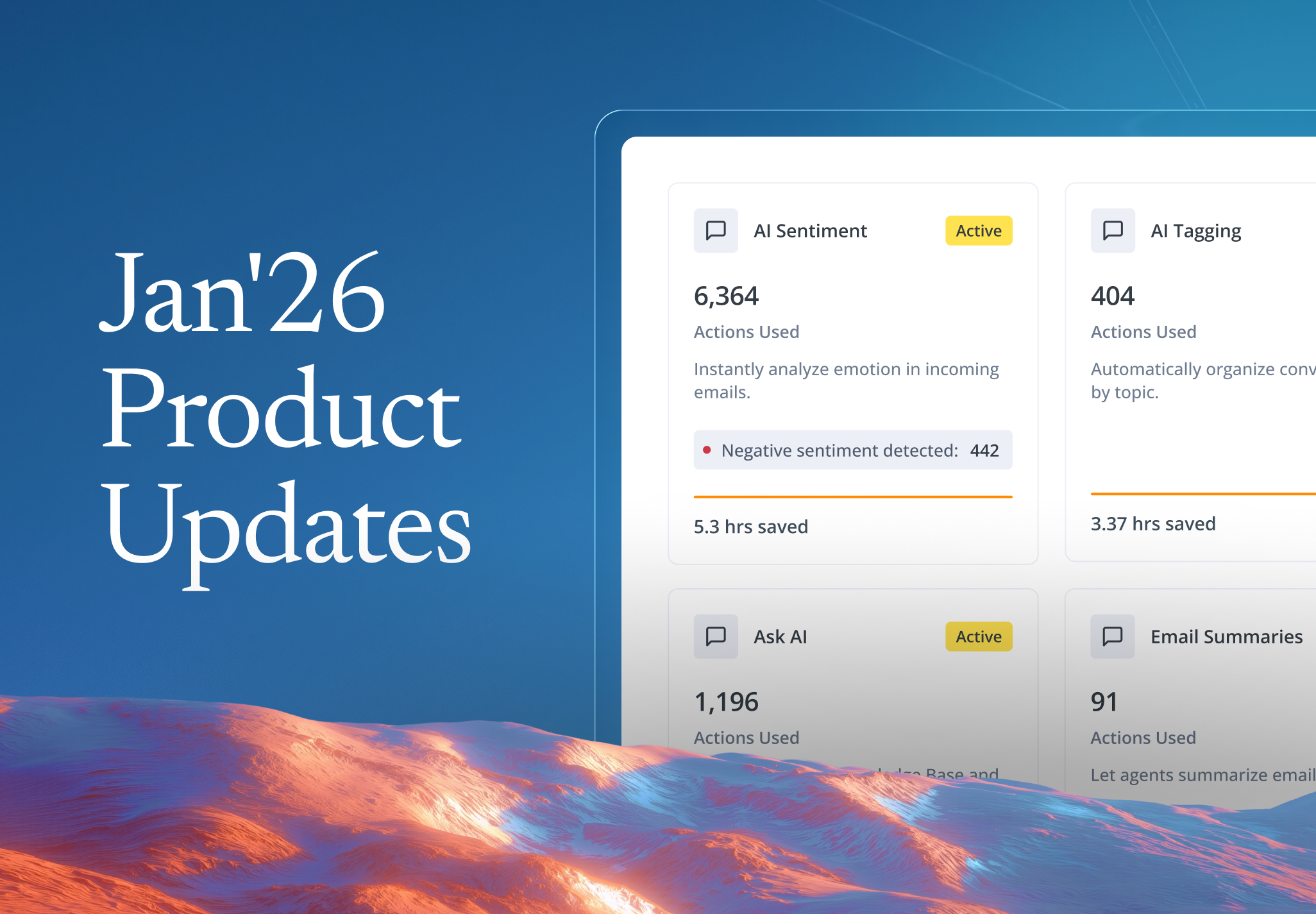There used to be a time when finance teams only required an accounting system and a spreadsheet to meet all the needs and expectations of the organization.
However, the role of finance has changed dramatically from that of ‘economic guardians’ to ‘architects of business value’.
Today, finance teams are looking for more efficient ways to approach process-heavy tasks, so that they can dedicate more time and effort to strategic work. If you look at these process-heavy tasks, you’d notice that a lot of them are to do with emails.
Sending payment reminders to customers, collaborating on disputes, responding in a timely manner to vendors, or searching for critical information on long email threads during audits, you name it.
Effective email management strategies allow finance teams to take charge of email communications, providing visibility into who is handling which email, its status, and any pending emails. Email management also helps finance teams collaborate better and simplify teamwork within the inbox.
Before we explore the benefits of email management for finance operations, let’s examine the challenges finance teams face in managing their emails.
Table of Contents
- Managing emails for finance operations comes with its fair share of hurdles
- Why email management is crucial for finance teams
- The power of shared inboxes in finance operations
- Supercharge your finance team’s operations with email management
Managing emails for finance operations comes with its fair share of hurdles
The constant influx of emails can be overwhelming, leaving finance teams struggling to keep up with the sheer volume of messages.
Here are a few instances that deserve a special mention:
- When it comes to audits, the pressure mounts as finance professionals scramble to piece together scattered email exchanges and documents from various threads and folders.
- Collaboration can suffer as team members find themselves lost in email threads where valuable input is easily overlooked, leading to confusion and delays in decision-making.
- Tracking the status of important tasks buried within a deluge of emails can feel like searching for a needle in a haystack.
- Lastly, and most importantly, the frustration of clients or colleagues waiting endlessly for a response to urgent emails that have slipped through the cracks.
Why email management is crucial for finance teams
For finance teams, email management goes beyond organizing messages. It’s about optimizing workflows, ensuring compliance, and safeguarding sensitive information. Finance teams handle various processes, each requiring attention to detail and clear communication.
- Accounting: Accurate record-keeping and timely reporting are essential. Organizing emails into folders or labels ensures all communication related to invoices, payments, and financial statements is easy to find and access.
- Accounts receivable: Efficient email management helps categorize and file customer communications, making it easy to track outstanding payments and follow up on overdue accounts. Setting up filters can automatically sort incoming emails related to payments and inquiries, ensuring timely responses.
- Accounts payable: Managing emails related to vendor invoices and payments is crucial. Using rules to filter and sort these emails helps ensure that payments are processed on time and that any issues are quickly addressed. Archiving important communications helps maintain a clear record of transactions.
- Reporting and analytics: These tasks involve gathering data from various sources. Efficient email management allows for the categorization of data-related emails, facilitating timely and accurate reporting. Filters can help sort incoming data-related emails for easier processing.
- Budgeting, forecasting, and planning: Tracking budget approvals, updates, and revisions is key. Using email labels and folders keeps all budget-related communications organized and accessible to all stakeholders.
- Treasury management: Managing cash flow, investments, and financial risks requires clear communication. Properly categorized and filed emails help track these communications and support informed decision-making.
- Tax compliance: Keeping track of correspondence with tax authorities and maintaining records of tax filings and payments is critical. Organized email archives ensure all tax-related communications are easily retrievable.
- Audit and compliance: During audits, a well-organized email archive is invaluable. It provides a clear trail of communications, approvals, and decisions, demonstrating compliance with regulatory requirements.
- Help desk: Efficiently managing emails related to customer payment issues and internal queries about reimbursements or payroll is crucial. Using rules and filters to sort these emails ensures quick responses and a clutter-free inbox.
Shared inboxes make email management more efficient and collaborative for finance teams—ensuring that nothing falls through the cracks.
The power of shared inboxes in finance operations
Shared inboxes are transforming how finance teams manage emails. They offer streamlined, collaborative, and efficient ways to handle communication.
Here’s how shared inboxes can revolutionize email management for finance teams:
Automating repetitive tasks
Shared inboxes can help automate routine tasks. For instance, emails coming to payroll@ or taxes@ can be automatically sorted, labeled, and assigned to the right team members. This reduces manual work and ensures timely responses.
Delegating emails and collaboration
Shared inboxes make delegating emails easy. Team members can add notes and tag colleagues right next to email threads, facilitating seamless collaboration. For instance, if an accounts payable email requires input from the Treasury team, tagging them directly in the email thread ensures they are promptly notified and can provide the necessary information.
Organizing and tracking queries
Shared inboxes help organise and track queries efficiently. You can delegate emails to specific team members and track their progress. Tools like Hiver have features like collision alerts that notify team members when a colleague is already working on an email, avoiding duplication of efforts.
Drafting responses and getting approvals
With shared inboxes, drafting responses and getting approvals become simpler. Teams can draft responses, seek approvals, and collaborate without forwarding or CCing emails. This keeps the inbox clean and communication clear. For example, an email draft for a tax compliance query can be reviewed and approved by a senior member of the team from directly within the shared inbox.
Performance monitoring and workload distribution
Shared inboxes allow managers to oversee team performance and workload distribution. You can set up SLAs and track resolution times, ensuring that the team meets its targets and handles workloads efficiently. This helps identify bottlenecks and balance tasks across the team, improving overall efficiency.
Supercharge your finance team’s operations with email management
Effective email management is no longer optional for finance teams; it is a necessity. By utilizing advanced tools like Hiver, finance teams can enhance their operational efficiency, ensure compliance, and provide better service to their customers.
You can automate repetitive queries; for example, all emails with the phrase ‘invoice amount’ would be automatically tagged under ‘Invoice’. Set up automation workflows for email threads to get timely approvals and maintain approval logs to ensure you never miss a deadline and your account books are up-to-date.
Book a demo with us to streamline email management for your finance teams.
 Skip to content
Skip to content
















